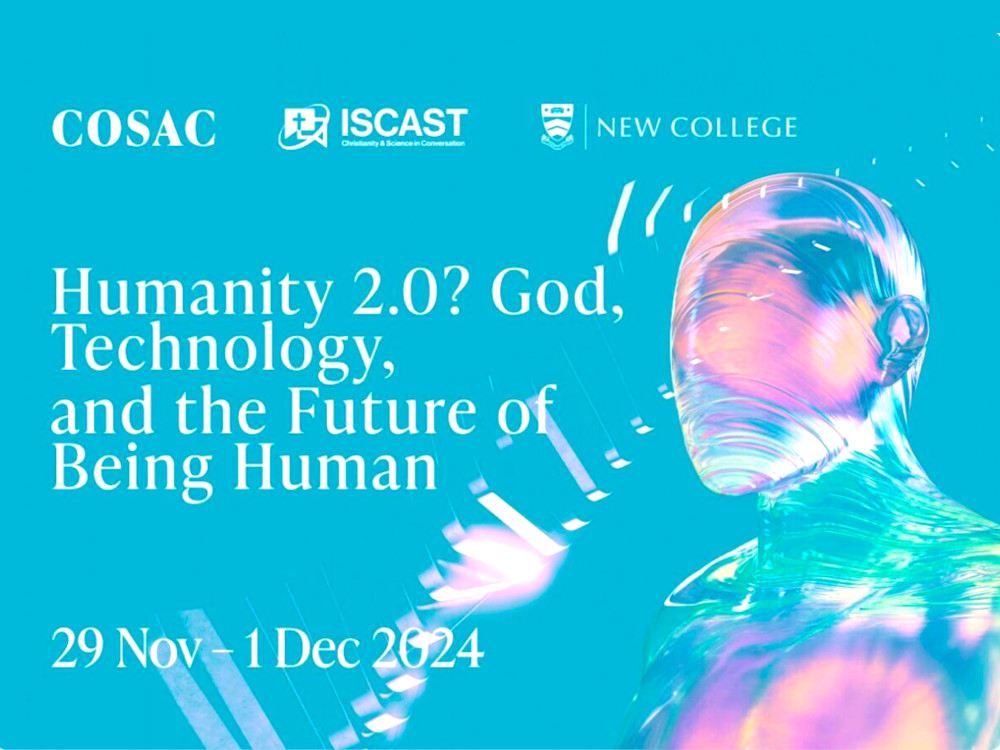The biennial Conference on Science and Christianity will feature three days (November 29 to December 1) of wide-ranging topics from Artificial intelligence and the “techno-optimist” mindset to the Bible and emerging ideas on gender. It is organisted by ISCAST a network of people, from students and lay people to distinguished academics, exploring the interface of science, technology, and Christian faith.
Key subjects include:
Living in an Age of Disruptive Technologies: AI and What It Means to Be Human and Ask the Expert and Your AI Questions Answered with Neil Dodgson. This talk will summarise the history of AI and explain the current technology of deep learning that has led to generative AI systems that can do things we once thought were the sole purview of human beings. Dodgson is Professor of Computer Graphics in the Faculty of Engineering and Dean of the Faculty of Graduate Research at Victoria University of Wellington.
This AIn’t Working: AI and the Future of Work with Kara Martin. She will explore AI’s potential to boost productivity and innovation while also addressing job displacement and inequality. Rooted in the biblical view of work as a gift from God, how can we affirm the dignity of human labour and highlight the importance of creativity, ethics, and stewardship in an AI-driven world? Martin lectures at Mary Andrews College, Sydney, and is an Adjunct Professor at Gordon-Conwell Theological Seminary, Boston.
What Does it Mean to Be Human? A Paleontological Perspective with Neil Ormerod. When European explorers “discovered” new lands and encountered indigenous peoples a repeated question was “are these people truly ‘human’?” Looking into the future, we face the same question in terms of technological enhancement of humans, or transhumanism. However, we can push the question back into the past. At which stage in human evolution did human being emerge? What are the markers that distinguish the human from the non-human? Ormerod is an honorary professor at Alphacrucis University College, and has doctorates in theology and pure mathematics. He has published 14 books and numerous research articles in leading international theological journals.
What Does it Mean to be Human? Reflections on Transhumanism & Technologies of the Future with Sandra Godde This talk will offer a brief overview of what transhumanism is, the goals that some advocates aspire to, and seven key threads of future technologies that relate to the “progress” of the human person. What transhuman agendas will usher in a new improved humanity? And what agendas will diminish and/or destroy human dignity and freedom? Are we “living souls,” made “in the image of God,” or merely “data algorithms” and “hackable animals”? Godde is an independent researcher and apologetics coach. For over a decade, she was a lecturer in theology and in Religious and Sociocultural Worldviews at Harvest Bible College (Brisbane) and Christian Heritage College.
Troubled Gender Between Creation and New Creation — Andrew Sloane People with gender dysphoria experience a distressing alienation from their sexed bodies. Theological responses to gender dysphoria range from those who reject both social and medical/surgical transitioning as an unfaithful rejection of the goodness of created embodiment to those who celebrate it as an expression of the diversity of God’s good creation. I aim to challenge those views by bringing to bear insights from eschatology and disability theology. Sloane is Lecturer in Old Testament and Christian Thought at Morling College, Sydney, where he has taught since 2002.
Why Judith Butler’s Conception of Fluid and Mosaic “Sex” Makes Sense … to People Who Have Forgotten the Theological Foundations of Modern Science with Paul Tyson What, then, does a biological scientist actually know? Butler’s answer is that nature (sex), culture (gender), and subjective belief (identity) are anti-essentialist and performative co-constructions. This paper will explain why, in our post-Enlightenment context, the denial that the male/female sex binary is an objectively observable biological reality is now thought to be a very reasonable stance. This paper will also critique this stance by drawing on the theological foundations of modern science. Paul Tyson is a philosophical theologian and a sociologist with interests in faith and truth, the sociology of knowledge, and the role that science plays in our approach to truth (and untruth) in the contemporary world.
Full list of talks at https://cosac.iscast.org/speakers/
COSAC 24 runs from November 29 to Dec 1 at New College, UNSW, in Eastern Sydney. Details https://cosac.iscast.org/#about

